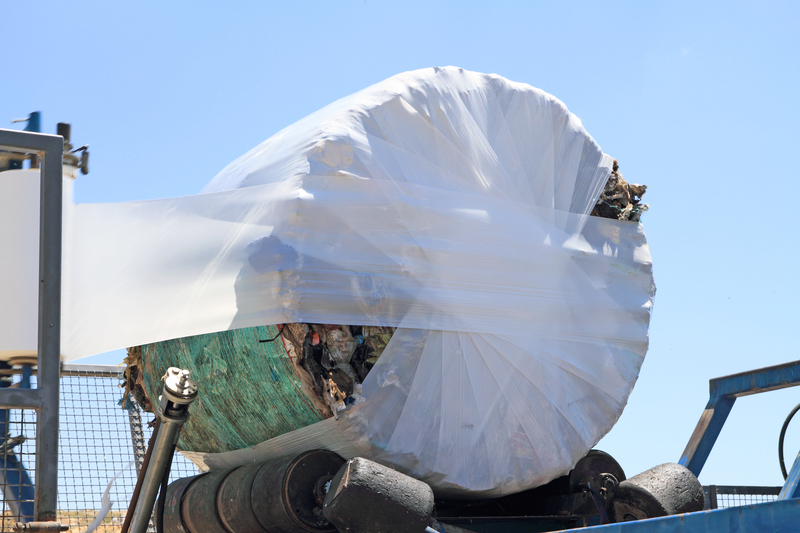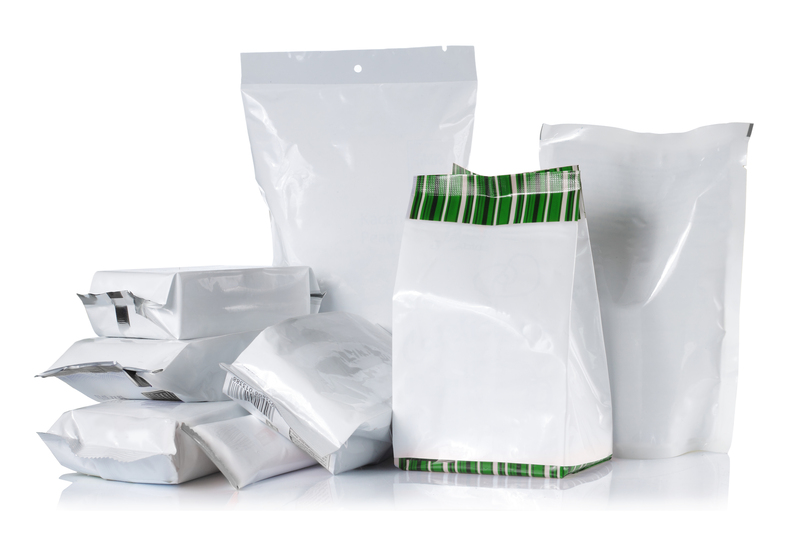From Rubbish to Riches: Inspiring Ways to Repurpose Discarded Items
Have you ever wondered what happens to those unwanted, discarded items you toss away? Believe it or not, what may seem like rubbish can become a source of treasure--both creatively and financially. In a world driven by sustainability, the art of repurposing old and unwanted objects has evolved from a humble pastime into a global movement called upcycling. This comprehensive guide explores inspiring ways to turn discarded items into valuable resources, home decor, practical tools, and even thriving businesses!
Why Transform Trash? The Environmental Impact of Repurposing
Every year, millions of tons of waste are dumped into landfills, harming our planet's ecosystem. The importance of repurposing and upcycling unwanted items lies not just in reducing landfill waste, but also in conserving resources and lowering pollution. Here's why you should care:
- Reduces landfill waste: Fewer discarded items reach landfills, lessening environmental strain.
- Conserves energy and resources: Creating new products from recycled or upcycled materials requires less energy compared to manufacturing from scratch.
- Sparks creativity: Repurposing transforms how we view possessions, fueling innovation and original design.
- Promotes sustainable living: Encouraging communities to rethink their waste habits leads to lasting environmental and social change.

Eco-Friendly Approaches to Repurposing Everyday Rubbish
Tackling waste doesn't require big investments or skills--only a fresh perspective and a sprinkle of imagination! Let's explore practical and inspiring ways you can repurpose discarded items around your home and community.
Creative Upcycling with Plastics
- Plastic Bottles: Cut and paint them to create stunning hanging planters, bird feeders, or even lamp shades.
- Plastic Bags: Weave them into durable baskets, mats, or eco-friendly tote bags using crochet techniques.
- Food Containers: Transform food tubs into organized storage bins for nuts, bolts, and craft supplies.
Turning Glass and Metal into Functional Decor
- Wine Bottles: Slice and sand wine bottles into vases or drinking glasses. Add fairy lights for enchanting lanterns.
- Jars and Cans: Decorate old jars into charming candle holders, spice organizers, or terrariums. Tin cans can become rustic plant pots or wind chimes.
Repurposing Old Furniture
- Wooden Pallets: Construct coffee tables, bookshelves, or garden furniture with simple tools.
- Drawers and Dressers: Convert drawers into floating shelves or dog beds; use dresser frames as unique planters.
- Chairs: Repair and repaint broken chairs for new uses or transform them into benches or swings.
Textile Transformation: Breathing New Life into Fabrics
- Old Clothing: Cut t-shirts into cleaning rags, quilt squares, or braided rugs.
- Denim: Patch worn denim into bags, organizers, or even unique wall art.
- Socks and Sweaters: Make sock puppets, arm warmers, or pet toys with leftover fabrics.
The Business of Upcycling: From Passion to Profit
Repurposing discarded items isn't just good for the earth--it can also be a lucrative venture. Many entrepreneurs have built successful businesses by turning rubbish into riches. Here's how:
Finding a Niche
- Furniture Restoration: Skilled artisans upcycle vintage pieces, reselling them as trendy, one-of-a-kind collectibles.
- Handmade Crafts and Gifts: Items like jewelry made from electronic waste or bags from recycled banners attract eco-conscious consumers.
- Home Decor: In-demand items include reclaimed wood shelves, bottle lamps, and quirky wall art.
Tips for Starting Your Upcycling Business
- Source Creatively: Scout thrift stores, garage sales, and local dumps for unwanted treasures.
- Hone Your Skills: Invest time in learning woodworking, sewing, painting, and marketing.
- Build Your Brand: Use social media to showcase your creations, tell your story, and connect with like-minded customers.
- Sell Online: Platforms like Etsy, Facebook Marketplace, and local artisan fairs are perfect for eco-friendly goods.
Real-Life Stories: When Rubbish Becomes Remarkable
Throughout the world, innovative individuals and organizations are turning the tide on waste--one project at a time. Here are a few inspiring success stories of upcycling and repurposing:
Worn Again: Fashioning the Future
UK-based company Worn Again recycles old textiles into brand-new garments, partnering with fashion giants to combat fast fashion's environmental toll.
Precious Plastic: A Global Upcycling Movement
The Precious Plastic project offers open-source machine blueprints and video tutorials, empowering communities worldwide to transform local plastic waste into useful products--from tools to tiles.
TerraCycle: Zero-Waste Solutions
What began as a composting initiative has become a multi-million-dollar company, TerraCycle collects and reprocesses hard-to-recycle waste, collaborating with major brands to create reusable packaging and innovative items.
Step-by-Step: Simple Upcycling Projects to Try at Home
Ready to embark on your own journey from rubbish to riches? Here are easy, rewarding projects anyone can do--no special skills required!
1. Tin Can Lanterns
- Clean out empty tin cans and remove labels.
- Fill them with water and freeze (this helps prevent dents when you punch holes).
- Use a hammer and nail to create patterns--stars, names, or swirls.
- Let the ice melt and insert a tea light candle.
- Perfect for garden parties or moody patio decor!
2. T-Shirt Yarn Rugs
- Cut old t-shirts into long strips and stretch them to form yarn.
- Braid the strips, coil into a flat spiral, and hand-stitch or glue as you go.
- An attractive, washable, and eco-friendly rug for any room!
3. Pallet Garden Planters
- Select a sturdy wooden pallet and sand any rough edges.
- Attach landscape fabric to create pockets for soil.
- Fill with compost and your favorite flowers or herbs.
- Mount against a sunny fence for an instant vertical garden!
Educational Upcycling: Teaching the Next Generation
Repurposing discarded items serves as a powerful educational tool. Schools and youth programs can inspire children to care for the planet, nurture their creativity, and hone hands-on problem-solving skills.
- Recycled Art Classes: Encourage students to turn everyday rubbish into sculptures, collages, or functional objects.
- Environmental Science Projects: Assign projects that investigate the impact of upcycling on local landfill reduction.
- Community Clean-up Events: Transform collected rubbish into public art displays or garden installations.
*By fostering a culture of upcycling, we empower future generations to turn waste into wonders--and make sustainable living a lifelong habit.*
Key Tips for Successful Upcycling Endeavors
- Start Small: Test a simple project before moving to bigger and more complex repurposing ideas.
- Safety First: Wear gloves, use proper tools, and ventilate your workspace, especially when working with old paints or chemicals.
- Get Inspired Online: Explore Pinterest, YouTube, and upcycling communities for fresh project ideas and tutorials.
- Share Your Success: Post before-and-after photos to social networks; you might inspire others to begin their own upcycling journey.

Conclusion: Unleash Your Inner Alchemist
Turning rubbish into riches is more than a trend--it's a revolution in how we view waste and creativity. Whether your motivation is environmental, financial, or artistic, repurposing discarded items brings countless benefits: cleaner communities, unique decor, saved money, and limitless personal satisfaction.
So, the next time you consider tossing something out, ask yourself: Could this item have a second life? The journey from landfill to treasure shop begins with a single, inspired idea.
Frequently Asked Questions (FAQ)
- What's the difference between recycling and upcycling?
Recycling breaks materials down to make new products, while upcycling involves creatively reusing items to create something of higher value or quality without breaking them down. - Is it cost-effective to upcycle items?
Absolutely! In many cases, upcycling saves money by reducing the need to purchase new goods, and creative upcycling can even become a profitable business. - How do I start an upcycling business?
Find your niche, develop your skills, source your materials, and promote your creations locally and online. A strong passion for sustainability and creativity helps, too!
Embrace the challenge. Turn trash into triumph. Join the worldwide movement and watch as your creativity transforms rubbish into riches!